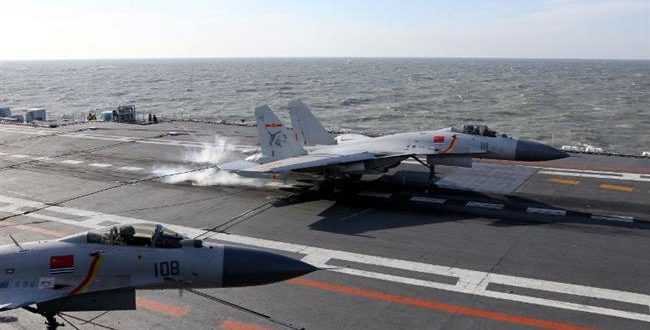Xi urges battle readiness
January 6, 2019 | Expert Insights

China’s armed forces must strengthen their sense of urgency and do everything they can to prepare for battle, President Xi Jinping told a meeting of the top brass.
President Xi had earlier stated that there should be a “national reunification” of China and Taiwan by either force or compliance.
Background
The island nation of Taiwan is a highly contested region in East Asia. While Taiwan is considered a province in “Greater China,” it is largely an independent state. The ambiguity can be traced back to 1927 when the seeds were sown for a civil war between the Kuomintang (KMT)-led government of the Republic of China, and the Communist Party of China (CPC). Both parties wrestled for control of China. While the civil war lasted between 1927 and 1950, the main phase is considered to be from 1945 to 1949.
After a recent move by the Communist Party, Chinese President Xi Jinping has been allowed to rule indefinitely. Jinping has been firm on his “One China” rhetoric and repeatedly warned against separatism. His self-proclaimed goal is that of “national rejuvenation”; Taiwan is an important part of this goal.
During the National Party Congress, Jinping said that China would “absolutely not tolerate the tragedy of the country’s split.” He issued a specific warning to Taiwan, stating that China had “a firm will, sufficient faith, and adequate capacity to defeat any intention of ‘Taiwan independence’ in any form.”
Analysis
China is keen to beef up its armed forces amid territorial disputes in the South China Sea and escalating tension with the United States over issues ranging from trade to the status of Taiwan.
At a meeting of the top military authority, Xi said that China faced increasing risks and challenges, and the armed forces must work to secure its security and development needs. Xi has re-proposed “democratic consultations” with Taipei to “reach transitional arrangements for the peaceful development of cross-strait ties”…”Chinese don’t fight Chinese,” he said.
Xi, who is also chairman of the Central Military Commission, said the armed forces must devise strategies for the new era and take on responsibilities for preparing and waging war.
“The world is facing a period of major changes never seen in a century, and China is still in an important period of strategic opportunity for development,” he was quoted as saying. He said the armed forces needed to be able to respond quickly to emergencies, needed to upgrade their joint operations capabilities and nurture new types of combat forces.
Xi’s comments followed his remarks on Wednesday that China still reserved the right to use force to achieve “reunification” with Taiwan and prevent the island’s independence. Xi’s Taiwan speech came just days after U.S. President Donald Trump signed the Asia Reassurance Initiative Act into law, reaffirming U.S. commitment to the island’s security.
The speech was less aggressive than the one he gave in March 2018, in which Mr. Xi said: “Not a single inch of our land will be and can be ceded from China.” However, he still threatened against any efforts to promote the island’s independence and said China would not renounce the option of using military force to bring it into the fold. China still sees democratic Taiwan as part of its territory ,to be reunified, despite the two sides being ruled separately since the end of a civil war in 1949. “China must and will be united … which is an inevitable requirement for the great rejuvenation of the Chinese people in the new era,” Mr. Xi said.
Xi’s comments on Taiwan comes amid tense ties with the United States and passage of the Asia Reassurance Initiative Act, which was signed by US President Donald Trump recently and promotes greater arms sales to and closer exchanges with the island – although Washington switched its formal diplomatic ties from Taipei to Beijing in 1979.
Analysts have long warned that the issue of Taiwan could spark a major conflict in Asia. Some analysts also noted there are concerns that US President Donald Trump may be willing to trade away US support for Taiwan in exchange for China’s help with resolving the North Korean issue.
Xi also said a “one country, two systems” model – an approach adopted in Hong Kong and Macau – was the way to resolve cross-strait conflicts, a suggestion Tsai rejected.
Assessment
Our assessment is that China has been aggressively suggesting a “national reunification” with Taiwan for a few weeks. We believe that President Xi is using the ongoing North Korean negotiations as a basis to influence the US from withdrawing support from Taipei. We also feel that the possibility of an all-out war with Taiwan is limited.








Comments